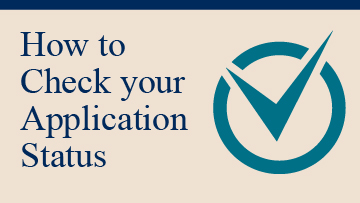Understanding the Status of SSI Benefits
When it comes to understanding the status of SSI benefits, it is important to have a comprehensive understanding of the topic. In this article, we will delve into the details of SSI benefits, their eligibility criteria, the application process, and the current status of SSI benefits in the United States.
What are SSI Benefits?
Supplemental Security Income (SSI) is a program administered by the Social Security Administration (SSA) in the United States. It provides financial assistance to individuals who have limited income and resources, and who are disabled, blind, or elderly. SSI benefits are designed to ensure a basic level of income for those who are unable to work or have limited earning capacity.
Eligibility Criteria for SSI Benefits
To be eligible for SSI benefits, individuals must meet certain criteria set by the SSA. The key eligibility requirements include:
Being aged 65 or older, blind, or disabled.
Having limited income and resources.
Being a U.S. citizen or a qualified non-citizen.
Residing in the United States or the Northern Mariana Islands.
Application Process for SSI Benefits
Applying for SSI benefits involves several steps. Here is a brief overview of the application process:
Initial Application: The first step is to complete and submit an application for SSI benefits. This can be done online, over the phone, or in person at a local Social Security office.
Documentation: Along with the application, individuals need to provide various documents such as proof of age, citizenship, income, and resources. These documents help determine eligibility.
Medical Evaluation: For disability claims, the SSA may require a medical evaluation to assess the severity of the condition and its impact on the individual’s ability to work.
Decision and Appeals: After reviewing the application and supporting documents, the SSA will decide eligibility. If the application is denied, individuals have the right to appeal the decision.
The Current Status of SSI Benefits
The current status of SSI benefits is subject to changes in legislation, economic conditions, and government policies. It is essential to stay updated with the latest information to understand any modifications or updates to the program.
Additionally, it is worth noting that the status of SSI benefits may vary from state to state. Some states offer additional supplements to the federal SSI benefit amount, known as State Supplementary Payments (SSPs). These payments can provide extra financial assistance to eligible individuals.

Understanding the status of SSI benefits is crucial for individuals who rely on this program for financial support. By meeting the eligibility criteria and following the application process, eligible individuals can receive the assistance they need. It is recommended to stay informed about any changes to the program and consult with the Social Security Administration or relevant authorities for the most up-to-date information.
SSI Benefits – Frequently Asked Questions
1. What is the status of my SSI benefits?
The status of your SSI benefits can be checked by contacting the Social Security Administration (SSA) directly. You can visit their website or call their toll-free number for more information.
2. How long does it take to receive a decision on my SSI benefits application?
The processing time for SSI benefits applications can vary. It typically takes around three to five months to receive a decision. However, in some cases, it may take longer depending on the complexity of your case.
3. Can I check the status of my SSI benefits online?
Yes, you can check the status of your SSI benefits online by creating an account on the SSA’s website. Once logged in, you can view the current status of your application or benefits.
4. What should I do if my SSI benefits application is denied?
If your SSI benefits application is denied, you have the right to appeal the decision. You should review the denial letter for instructions on how to appeal and follow the necessary steps within the given timeframe.
5. How often are SSI benefits paid?
SSI benefits are typically paid every month. The exact payment dates may vary depending on your specific case. You can check the SSA’s website for a payment schedule or contact them for more information.
6. Can my SSI benefits be suspended or terminated?
Yes, your SSI benefits can be suspended or terminated if there are changes in your circumstances that affect your eligibility. This can include changes in income, resources, or living arrangements. It is important to report any changes to the SSA promptly.
7. How can I update my personal information for SSI benefits?
To update your personal information for SSI benefits, you should contact the SSA and provide them with the necessary updates. This can include changes in address, marital status, or employment status.
8. Can I receive SSI benefits while working?
Yes, it is possible to receive SSI benefits while working, but your earnings may affect the amount of benefits you receive. The SSA has specific rules and limits regarding income and work incentives for SSI recipients.
9. Can I receive SSI benefits if I have other sources of income?
Yes, you may still be eligible for SSI benefits even if you have other sources of income. However, the amount of your benefits may be reduced based on your overall income and resources. It is important to report all income to the SSA.
10. How can I contact the Social Security Administration for SSI benefits inquiries?
You can contact the Social Security Administration for SSI benefits inquiries by visiting their website at www.ssa.gov or by calling their toll-free number at 1-800-772-1213. They have representatives available to assist you with any questions or concerns.




